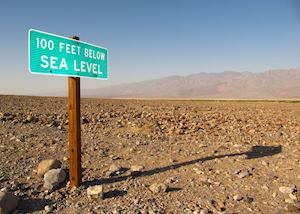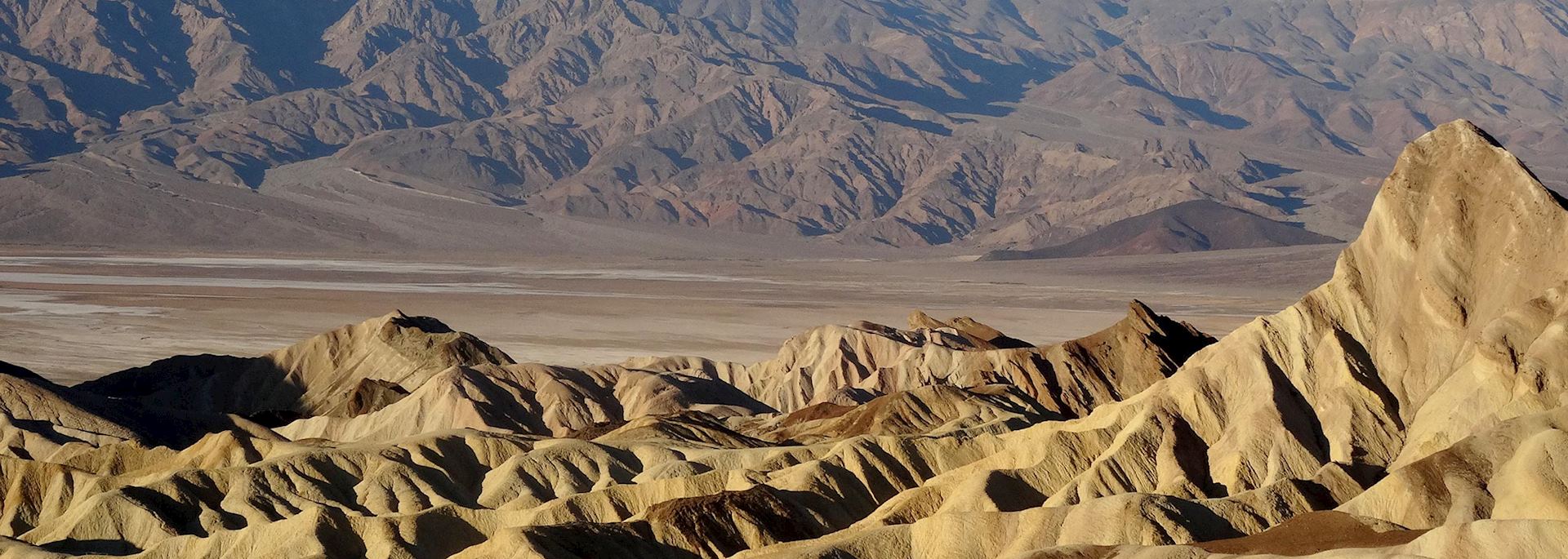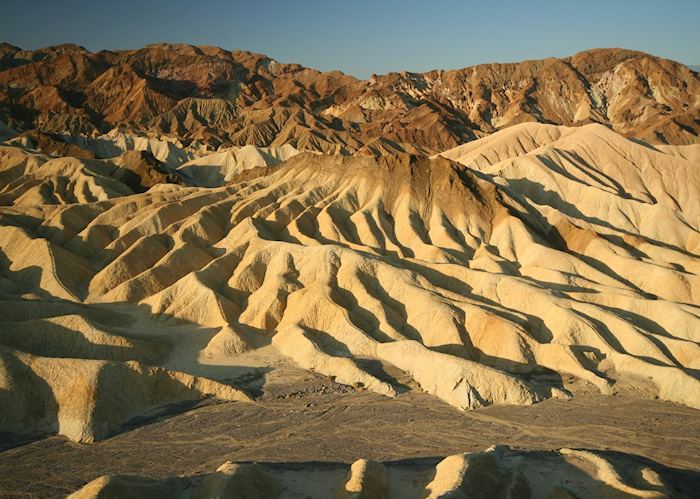Jump to:
Death Valley National Park can best be described in superlatives: it is both the hottest and driest park in the US and, at 282 feet below sea level, is the lowest point in North America.
 Its extreme temperatures make it best visited in the winter, when snow caps the mountains and the low light gives the desert a golden hue. Spring is another good time to visit when over 1,000 species of plants burst into flower bringing the landscape to vivid life. During the height of summer heat creates a shimmering mirage so it is highly recommended that sightseeing takes place just after dawn or before dusk.
Its extreme temperatures make it best visited in the winter, when snow caps the mountains and the low light gives the desert a golden hue. Spring is another good time to visit when over 1,000 species of plants burst into flower bringing the landscape to vivid life. During the height of summer heat creates a shimmering mirage so it is highly recommended that sightseeing takes place just after dawn or before dusk.
The main villages in the park are Stovepipe Wells, located near the Panamint sand dunes, and Furnace Creek, home to the park's visitors' center. The park's most unusual sights are found south of here. These include Artist's Palette, an eroded hillside covered in intensely colored reds, golds, greens and blacks.
Further south lies Devil's Golf Course, a field of salt pinnacles, whilst Badwater is a 30-foot wide pool of water loaded with chloride and sulfates. From the pool two four-mile walks cross the hot valley floor and descend a further two feet to the lowest point in the Western Hemisphere. Dante's View, further on, offers wonderful vistas of the wide parched desert floor and the Panamint Mountains.
who's been there
Start planning your tailor-made trip to Death Valley National Park by contacting one of our California specialists
-
617-223-4521617-223-4558
- Make an inquiry
Places near Death Valley National Park
- Sequoia National Park 83 miles away
- Kings Canyon National Park 88 miles away
- Las Vegas 109 miles away
- Yosemite National Park 166 miles away
- Los Angeles 183 miles away
- Palm Springs 189 miles away
- Santa Barbara 207 miles away
- Pismo Beach 221 miles away
- Zion National Park 232 miles away
- Lake Tahoe 242 miles away
- San Diego 262 miles away
- Big Sur 264 miles away
- Monterey 268 miles away
- Carmel 270 miles away
- Bryce Canyon National Park 281 miles away
- Sacramento 282 miles away
- Grand Canyon National Park 288 miles away
Photos of Death Valley National Park
Accommodation choices for Death Valley National Park
We've selected a range of accommodation options for when you visit Death Valley National Park. Our choices usually come recommended for their character, facilities and service or location. Our specialists always aim to suggest properties that match your preferences.
-
![The Ranch at Death Valley, Death Valley National Park]()
The Ranch at Death Valley
Death Valley National Park










